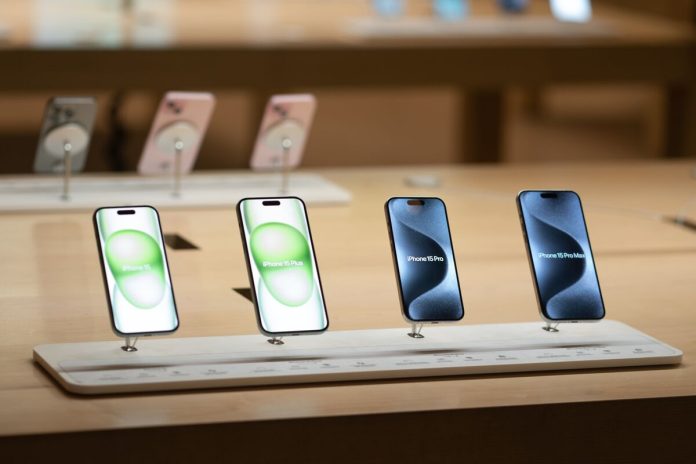In 2023, Apple became the top-selling smartphone company, beating Samsung for the first time since 2010. They shipped nearly 235 million iPhones, capturing 20% of the global market, while Samsung fell to second place with 226.6 million shipments.
Despite some countries showing reduced demand for iPhones due to cheaper alternatives, Apple’s overall sales remained robust, indicating their ability to navigate industry challenges better than rivals like Samsung and Chinese brands like Xiaomi.
While facing hurdles in China, Apple’s largest market, where Huawei gained popularity, the company managed to expand its market share through aggressive offers and a rising demand for high-end smartphones. Research firm IDC highlighted that Apple’s success is linked to the growing trend of premium devices, constituting over 20% of the market.
Apple adopted a strategic approach to boost sales, offering enticing trade-in deals and interest-free financing, especially in the face of heightened competition from Huawei in China. Despite the smartphone market experiencing a 3.7% global growth, Apple wasn’t entirely immune to the overall decline in demand for smartphones.
Apple’s ability to outperform Samsung was attributed to its controlled pricing strategy for premium smartphones, in contrast to Samsung’s rising prices.
Apple faced challenges in China due to the popularity of Huawei, but their resilience in the market was evident. The company’s achievement in surpassing Samsung marked a significant milestone in the smartphone industry.
It reflected Apple’s adept handling of market dynamics, especially in the face of global economic factors impacting smartphone demand. Apple’s success underscores the importance of strategic pricing, attractive offers, and a focus on premium devices in the highly competitive smartphone landscape.


